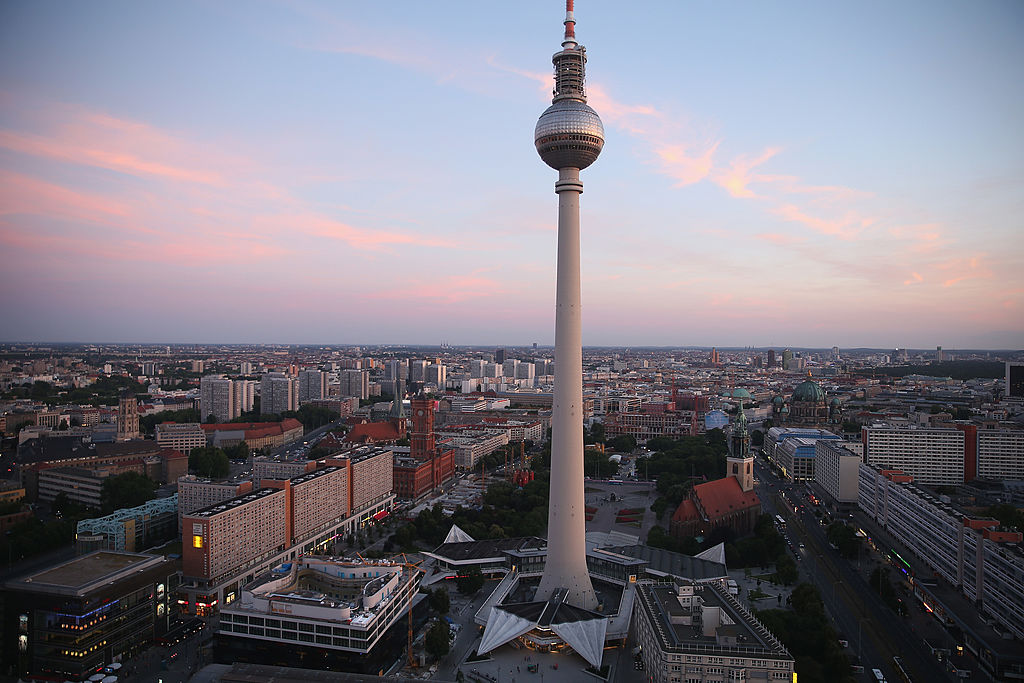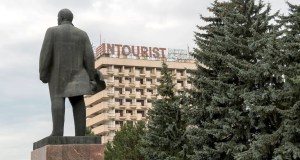I’ve never known a country where people are more wrapped up in the status conferred by their car than Germany. The puffed-up self-regard of a German ensconced in a posh Porsche — and there are a lot of them in Berlin these days— is a wonder and a danger to behold. They will run you down, or nearly. They blithely commandeer bus lanes on the Kurfürstendamm, flying by plebes stuck in traffic like medieval lords claiming droit de seigneur. Germans, even jaded Berliners, obey pedestrian traffic laws perhaps because they like order, but also because they rightly fear becoming roadkill on the grille of a big Mercedes. If these windshields are a window on the German soul, there’s a load of vestigial aristocratic entitlement in there. Anger. Arrogance. Horsepower. It makes you wonder about the modest face Germany has shown the world since it was humbled by Allied forces in World War Two. And the deference other Germans — even police — show that high-handed guy in the luxe car is a wonder too. Achtung, baby!
It’s a six-hour drive from Berlin to Ukraine but longer by tank, and the flat whites and pastries at Zeit für Brot are so creamy and dreamy, who’s counting? In the chill gray of late January, as Russian forces gathered and most of Europe bristled, Germany’s capital seemed to long to hibernate. Wake us when it’s over, bitte. Berliners know exactly what Russian dominance can mean. You can still go and gape at the Wall, of course. But decades of unruffled affluence and a sense of inviolability under superpower protection have dulled alarm systems here and made room for comfortable alternative theories of international relations and bald mercantile calculations. There is genuine remorse at the staggering death toll Hitler’s forces inflicted on the Soviet Union and a real urge to find alternatives to arms. But Germany is also in a long rebalancing dance as America’s relative economic weight and political magnetism decline. Chinese markets mute criticism of China. “Russia understanders” sleep side-by-side with Germans who just want Russian gas. Swiss neutrality looks pretty appealing. Be free, yes, of course. But above all, be rich.
In the long stretch between his gilded Russian youth and émigré life in America, Vladimir Nabokov lived fifteen years in Berlin as Germany was sliding into fascism. His grandfather had been minister of justice to Czar Alexander II. His father tried to make a political path between czarists and Bolsheviks until Russian monarchists shot and killed him in Berlin in 1922. In the summer of 1932, as Nazis and communists fought in Berlin’s streets, Nabokov lived around the corner from where I live now, and in four months he wrote the novel Despair. I know because a plaque on the wall reminds me every time I go out for beer. Within months, the Reichstag had burned and Hitler was in power. These days it’s German anti-vaxxers who flash hard-right power symbols. The government is considering banning the encrypted instant messaging service Telegram, to bring them out of the shadows. The left speaks mainly with graffiti, and there’s a lot of that, flailing at the city’s years of booming gentrification. But even in history-scarred Berlin, it’s now the Capitol building in Washington, wreathed in January 6 tear gas, that’s become the symbol of struggling democracy under attack. It’s going to be fascinating watching Germany slowly respond to a changed world. “Democracy is humanity at its best,” Nabokov insisted, years after his Berlin sojourn. “It is the natural condition of every man ever since the human mind became conscious not only of the world but of itself.” We shall see.
My handsome friend Frank had a good run moonlighting on German television, then moved on to fill his ample spare time with opera and travel. Covid-19 has of course battered both. Over lunch at Café Einstein Stammhaus, he gets misty over an imperiled opera season and the Omicron wave putting the brakes on winter travel to South Africa. What’s the use of being a cultured German of means if you can’t have Mozart and Cape Town? Berliners can get Covid-tested for free at pop-up tents all over the city. Piles more quick tests have been for sale cheap in all kinds of retail outlets. But German exceptionalism has taken a hit in the Covid onslaught. Once-low rates of infection are now high. My good Frank rubs his temples. It must pass, he says. But when?
Germans are at their most lovable walking in the woods. On the outskirts of Berlin, they do it in droves. Berliners have a reputation in Germany as brusque, rude. Put them on a walk in the woods and they’re charming. Even midwinter, they surge around Berlin’s penumbra of lakes. The whole family comes. Dogs are everywhere. The simple pleasure is palpable and deep. But it’s still Germany. On a cold, wet Grunewaldsee, the muddy lakeside trail was packed with happy weekend hikers dressed in Balenciaga, Givenchy, Burberry, Louis Vuitton. On our cellphones along the trail, news alerts showed Russian troops in the woods around Ukraine. It seemed another world.
This article was originally published in The Spectator’s March 2022 World edition.


















